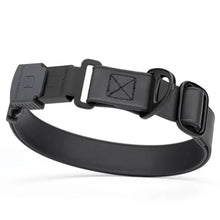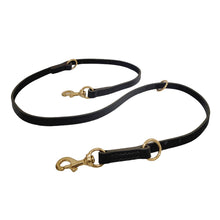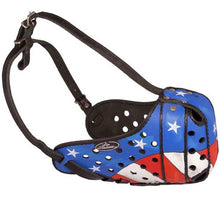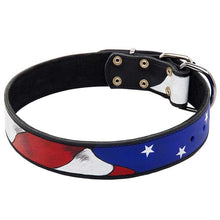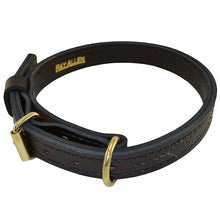How German Shepherds Become Overprotective And How To Prevent It

German shepherds are natural guardians of their home and family. Bred to herd and guard their flock, these working dogs intelligent, brave, and confident. They are very active, high energy, and hyper aware of what’s going on in their surroundings.
German shepherds are very loyal and form close bonds with their humans. They are happiest when hanging out with their people and love being a companion and the center of attention. They are also playful, affectionate, and loving.
Due to their strength, size, and personalities, German shepherds require training and socialization to thrive in their homes and be good citizens in their communities. Untrained shepherds that lack guidance can develop many behavior problems.
German shepherds are also highly adept of reading body language, being in tune with their owner’s emotions, and are intuitive. These traits make them amazing pets that are easy to train, a joy to be around, and awesome pet partners in life.
These same traits, coupled with lack of training, guidance, and leadership, have the potential to create dogs that are overly bold, insecure, fearful, or even aggressive. This is not ‘normal’ behavior for a German shepherd and early intervention is the key to reversing it so the dog can develop into the happy companion it was born to be.
One problem that may develop from lack of leadership and training is over protectiveness of the owner. A dog that is over protective of its owner may growl, snap, act out, lunge, or even bite people who get to close to their person, even outside the home.
This behavior will lead to a pet that is wary of strangers, unfriendly to company and/or other people living in the home, is hard to walk, dangerous to take on outings or vacations, is difficult to take to the vet, and overall stressful to own even when loved very much.
Since these dogs are so powerful and determined, an over protective German shepherd is a scary thing. Their behavior not only puts their owner at risk of liability, it can result in them being impossible to socialize. Sadly, some of these dogs are euthanized, dumped in a shelter, or end up spending their life alone in a yard.
The causes of over protectiveness can be many. Usually, it’s simply a lack of puppy training and guidance. When dogs are young, they are trained ground rules and learn to trust their owners. A bond develops between dog and owner. A sense of security in the dog is developed and years of happiness follow.
When a dog lacks training and doesn’t develop a sense of security, they can become unruly, fearful, anxious, and insecure. They don’t know their place in the world and have no routine. They lack confidence and may begin to make their own decisions.
German shepherds are a decision making breed and often called Velcro dogs because they love to be glued by their owner’s side. When they are young they learn how to greet and welcome people into their circle and home. They learn what acceptable behavior is and what is not from their owner. They learn that it’s okay for their dog parent to receive a hug, handshake, or even have a conversation with a stranger.
Puppies that lack this guidance may begin to exhibit guarding behavior out of insecurity and fear. When they are young, it may seem adorable when the little bundle of fluff acts out. The dog may even be unwittingly rewarded if the owner thinks it’s funny or cute. The dog learns that it gets attention when it barks, guards, and acts aggressive at a person.
As the dog begins to mature, perhaps the owner receives some sort of emotional reward when their dog guards them. Their dog is showing love and devotion, they feel their dog will protect them with their life. They may feel pride that the dog is so brave, until the behavior is out of control or a tragedy happens.
The guarding behavior escalates because the dog is able to intimidate people and has become powerful in its insecurity. If the dog growls and scares a person who then moves away, mission accomplished. The next time the growl doesn’t work so the dog adds a snarl, maybe a snap, shows some teeth and the person backs off. The dog soon has no boundaries and may bite without provocation. This dog is not brave at all and the situation is very sad.
Some over protective situations are more unusual yet no less dangerous. These may include prior abuse, lack of socialization, unstable household, abusive household, isolation, anxious or fearful owner, ill owner, or ill pet, and more.
The bottom line, no matter the cause of over aggressive behavior, it needs to be stopped. An over protective dog is a time bomb waiting to go off. They are a danger to themselves and others. Both owner and dog deserve much more.
If the dog is still young, it’s time to start training. It’s never too late to begin to lay the foundation for a great relationship. If the dog is more mature, training by a professional or owner can reverse the situation. If the problem is deeply rooted or has become dangerous, a professional trainer can help. In some cases, a behaviorist can help to identify what the trigger is.
Dogs should never be encouraged to be over protective of their owner. Over protective dogs are not “protection dogs,” the opposite, in fact, is true. Protection dogs are highly trained, have rock solid nerves, they understand what a true threat is, they obey commands, and rely on their handlers for guidance.
To prevent a dog from becoming over protective:
- Provide a safe and healthy environment
- Start training the day you bring your dog home
- Gently set clear and firm boundaries
- Enjoy playtime and provide enrichment activities
- Teach your dog how to behave by training each day
- Reward and praise the dog often for desired behavior
- Socialize the dog and expose it to new surroundings and people
- Prevent all guarding behavior (food, toys, people, other pets, children) from starting
- Never reward negative behavior
- Ask for help if needed
- Remember it’s the owner’s job to provide a safe, secure life, not the other way around
Please share this helpful info with your family and friends.






